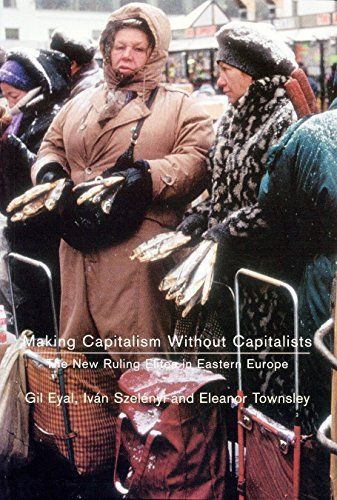
Making Capitalism Without Capitalists Class Formation and Elite Struggles in Post-communist Central Europe
Making Capitalism without Capitalists guides us towards a deeper understanding of the origins of modern capitalism. Classical social theory in its search for the genesis of capitalism explored the process of transition from feudalism to capitalism. Making Capitalism without Capitalists focuses instead on the transition from socialism to capitalism, where capitalism is made without a capitalist class. Making Capitalism without Capitalists reflects on the sociological characteristics of the Communist system breakdown in 1989 and offers a theory of social structure of post-Communist societies. 1989 is seen as a successful revolution led by the former technocratic fraction of the old Communist ruling estate against the bureaucracy. In order to secure its victory, however, the technocracy had to make substantial concessions to the former dissident intelligentsia. The irony of the post-Communist way to capitalism is that these most unlikely actors see 'building capitalism' as their historic task. By identifying some unique features of capitalism built on the ruins of socialism, Making Capitalism without Capitalists contributes to a deeper appreciation of the diversity of capitalism today.